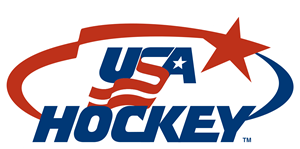Team Manager Requirements
Dayton Icehounds Youth Hockey requires all of our team managers to be properly registered and screened in accordance with USA Hockey, Mid-American District, State, and local rules and regulations.
What are the steps to becoming a team manager?
Step 1: Register with USA Hockey. This is an annual registration process. The registration number will be used to register with us.
Step 2: Register with us.
Step 3: Go through the USA Hockey background screening . Background screens must be completed every two (2) seasons. You must have a current season USA Hockey confirmation number to apply for a background screen. Once the screen is complete, the Registrar will be notified.
Step 4: Take the USA Hockey Safe Sport Program. Safe Sport must now be renewed EVERY season by either re-taking the entire Safe Sport Program or by participating in a thirty (30) minute, online renewal course. Confirmation is automatic to the Registrar.
Step 5: Take the NFHS Concussion Course and submit the completion certificate to the Director of Coaches. The Concussion Course must be completed every three (3) years.
What does a team manager do?
Good team managers are vital for a successful season and they quickly become the right hand to the coaching staff. While specific duties may be separated slightly differently based on the personalities of the coaches and the team manager, the following list is a good place to start:
- Build and maintain the team book. This is a three ring binder that includes all of the vital documents for the team. These documents include:
- Official team roster and any supplemental rosters
- Team schedule for games and practices
- Team contact list with mobile phone numbers for all parents and coaches
- Game scoresheets (blank and for the games already played)
- Directions to rinks
- Note paper
- Be the team communicator. It's a great idea to create a team email list (or use the email capabilities of the Icehounds website) and send out team updates once per week. These emails should serves as reminders for upcoming practices and games for that week. They can include directions to new rinks and details on any other team events for that week.
- Communicate with the coach and/or manager for the teams you play each week. Regardless of whether you are home or away, it's a good idea to drop an email to the opposing team to confirm the game day, time and location.
- Serve as the buffer between the coaches and the parents, particularly right after games. Create a trusting rapport with all of the parents so they feel comfortable sharing their concerns with you and know that you will address their concerns with the coaches. Build that same trust with the coaches, so they are comfortable knowing you will listen to the parents and then let the coaches know when there are issues that need to be addressed.
- Plan and coordinate the social side of the team. This may be anything from the weekly snack schedule at younger age levels to making team dinner reservations or hotel reservations when the team is on the road. If this isn't something you are comfortable doing, it may be delegated to another responsible parent, but you should still be prepared to follow up.
Being a team manager is a lot of fun and it's very rewarding. You will build a rapport with families that will grow to strong friendships, even if your kids aren't playing on the same team in future seasons.
Oops!
You have unsaved elements
Please save or cancel the pending changes to the elements within your page and then try saving again.



